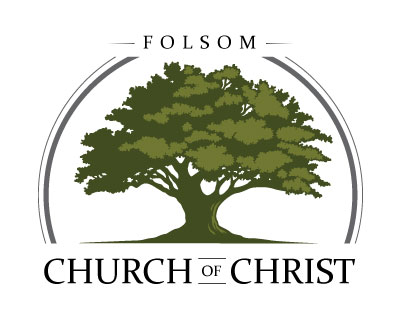Article
Love, The Divine Motive
Dee Bowman
“Motive” is from the Latin movere, to move. It is akin etymologically to both motion and motor. It means, “that which moves or tends a person to a particular course of action” (OED). A motor is an apparatus which supplies motion; that is, it moves something. And so it is with love. It is a mover, but with a higher intention, a moral purpose. Love is the greatest of all movers, the highest of all motives. It motor-vates the highest and most noble of aspirations.
We can misuse love, make it move things that are foolish, even sinful.
Love of self is a poor use of love. “If a man thinketh himself to be something when he is nothing, he deceiveth himself” (Galatians 6:3). Paul’s list of men’s sinful proclivities in II Timothy 3:1-2 includes those who are “lovers of their own selves.” Such love causes our most precious expenditures to be on self, relegating our love for God to a lower place. Self is a poor object for our affections.
Love of preeminence is a poor use of love. Diotrephes is described as one who “loveth to have the preeminence” (III John 9). In Luke 14:11, Jesus reminds that, “whosoever exalteth himself shall be abased; and he that humbleth himself shall be exalted.” Love of prominence and power causes one to be forgetful of others, hateful to those it sees as competition, preoccupied with selfish intentions and personal designs. This kind of love is repugnant to God.
Love of pleasure is a poor use of love. In Paul’s list to which we referred earlier, he includes “lovers of pleasures more than lovers of God.” There are those who have elevated pleasure to the main motive for life. The Hebrew writer commends Moses who chose to suffer with His people rather “than to enjoy the pleasures of sin for a season” (Hebrews 11:25). Notice that he says love of pleasure is seasonal; it doesn’t last. It’s fruit has no lasting value.
Love of this world is a poor use of love. “Demas hath forsaken me, having loved this present world,” said Paul (II Timothy 4:10). James informs that “friendship with this world is enmity with God” (James 4:4), and John implores that we “love not the world, neither the things that are in the world” (I John 2:15). To love the world is to put our affections, our emphasis, our most intense considerations, on worldly things–to place too high a value on worldly notions, sensuality, pride, things that satisfy instead of things that edify. No matter how you figure it, that shows we don’t love God like we ought.
Love, properly applied, is the highest and purest of all motives.
It moves us to love and respect God. “Beloved, let us love one another, for love is of God and everyone that loveth is born of God; and knoweth God,” John says (I John 4:11). God is love (I John 4:8). He not only loves, He is love. To love God supremely attaches us favorably to Him who is the originator of love and progenitor of all that is pure and holy.
It moves us to love and care for one another. The first and second commandments, according to our Lord, demand that we love God with all the heart, and “love thy neighbor as thyself.” He here affirms that love of God and love of our fellows are the foundations for all good relationships (Matthew 22:37-40). This love propels us consistently toward God and His ways. It lifts us above petty preferences, it broadens the scope of “who is my neighbor?” Here is love made practical, love made effective. How foolish to neglect these two basic motives on which all good conduct is predicated.
It moves us toward unity. Unity is briefly comprehended in togetherness. This pure motive binds us together. Paul calls it “the bond of perfectness” (Colossians 3:13). He also speaks of hearts that are “knit together in love” (Colossians 2:2). Such love motivates unified efforts, sameness of conduct; it precludes problems, promotes peace, and enhances the most simple or the most complex relationships. Love brings people together. There can be no true unity in the absence of true love.
It moves us to do good, no matter what. This love is so pure, so holy, that it will allow it allows a person to love his enemies, to “do good to them that hate you, and pray for them which despitefully use you and persecute you” (Matthew 5:43-44). It encourages a person to align things in the proper order. This love leaves it up to God to take care of difficulties and manage matters of judgment. “Rather give place unto wrath. Vengeance is mine; I will repay, saith the Lord” (Romans 12:19-21). True love reaches into every area of life–even those that are unpleasant.
Love is the supreme motive. Love is the vital concern, the ultimate goal. To love God as we ought is what man is all about. Let us love, for love is of God.

